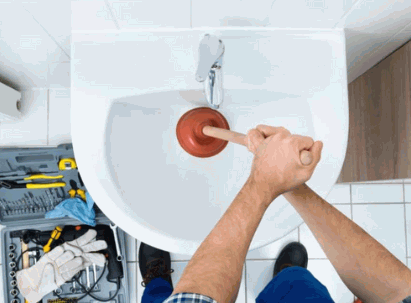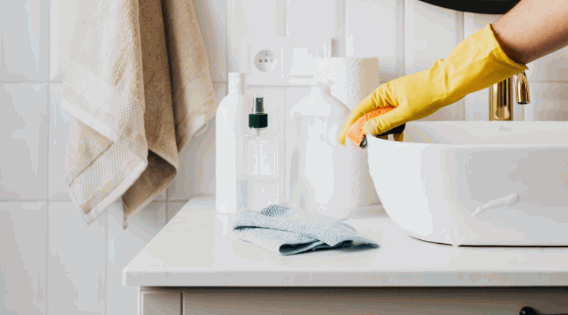
A clean bathroom sink drain might not be the first thing on your cleaning checklist, but it plays a crucial role in maintaining a hygienic and functional bathroom.
Over time, drains can become clogged with hair, soap residue, and other debris, leading to unpleasant odors and slow water flow.
This article explores the importance of cleaning your bathroom sink drain, signs of clogs, effective cleaning methods, and preventive measures to keep your drains flowing freely.
Regular maintenance can save you money and enhance your bathroom experience!
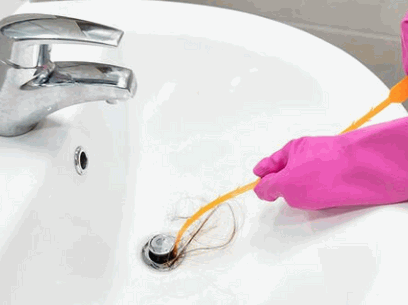
Table of Contents
Cleaning the bathroom sink drain is crucial for maintaining a hygienic home environment, as it helps to eliminate unwanted odors and prevents mold buildup. Over time, debris such as soap residue, hair clogs, and other natural ingredients can accumulate, leading to clogged drains that can cause water to back up and create unsightly messes. By regularly cleaning the drain, you not only enhance the functionality of your plumbing system but also help maintain the overall cleanliness and health of your bathroom, making it a pleasant space for you and your family.
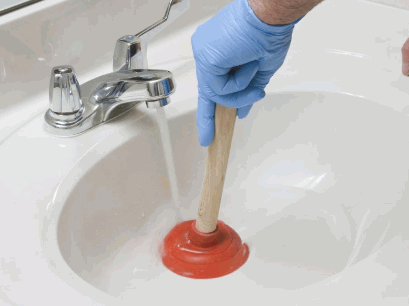
Recognizing the signs of a clogged drain is essential for addressing plumbing issues before they escalate into more serious problems. Common indicators include slow drainage, where water takes longer than usual to go down the sink, as well as foul odors emanating from the drain, which can signify the presence of debris such as hair clogs and soap residue that are preventing proper flow. Additionally, water backup in your bathroom sink can be a clear sign of significant obstruction, prompting immediate action to prevent further complications.
Dig deeper: How To Clean The Drain On A Dishwasher
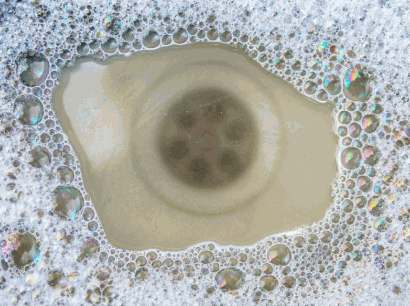
Several factors contribute to the formation of a clogged drain, with hair clogs and soap residue being among the most common culprits. Over time, hair can accumulate within the drain, particularly in the P-trap, while soap residue builds up from daily washing of hands and face, contributing to the obstruction of water flow. Mold buildup and organic materials, including food particles and natural ingredients, can exacerbate the clogging situation and lead to unsanitary conditions within your plumbing system.
It's essential to understand that a variety of materials can lead to drain blockages, each posing unique challenges for homeowners. Here’s a brief overview of some common contributors:
Being proactive about maintaining plumbing health can prevent these issues from escalating into costly repairs and ensure smooth water flow in your home.
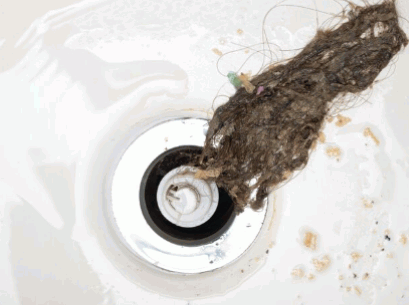
Cleaning a bathroom sink drain effectively can involve various methods and solutions, tailored to the severity of the clog. You can start with simple DIY vinegar and baking soda techniques, which are natural ingredients that can break down build-up and unclog drains without harsh chemicals. For deeper clogs, using a drain snake or a cleaning solution like hydrogen peroxide can provide more powerful results. In cases where these methods are ineffective, it may be necessary to consult a professional plumbing service to ensure proper care and maintenance of your plumbing system.
A plunger is one of the simplest tools you can use to unclog a bathroom sink, effectively utilizing pressure to dislodge debris that may be causing the blockage. To use a plunger, ensure there is enough water in the sink to cover the rubber suction cup, which helps create an effective seal. By plunging vigorously up and down, you can generate suction that may break up hair clogs, soap residue, and other materials obstructing the drain.
First, prepare the area by removing any items from around the sink to give yourself adequate working space. Next, check that the sink is filled with enough water, approximately 1-2 inches deep, to create a good seal with the plunger. If the sink has a second drain, such as an overflow, be sure to block it with a wet cloth to maintain pressure.
After a few vigorous plunges, lift the plunger to see if the water drains away. If the blockage persists, you may need to consider additional measures, such as using a plumber’s snake or a natural cleaning solution like baking soda and vinegar to help dissolve the clog. Remember, patience and persistence are key when dealing with stubborn clogs.
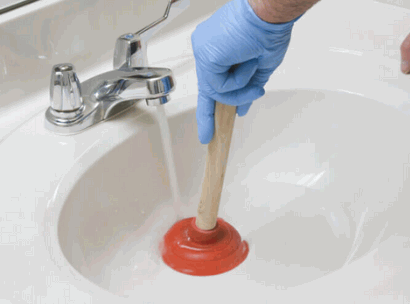
Using a drain snake is an effective method for tackling more stubborn clogs in your bathroom sink, particularly when hair clogs and debris have built up deep within the plumbing. A drain snake, or an auger, is a flexible tool that can reach into the pipes and break apart or remove clogs, allowing for improved water flow. To use it, insert the snake into the drain, then turn it to latch onto the debris before pulling it out, effectively unclogging your sink.
Before you begin, it’s essential to take some safety precautions. Always wear gloves and protective eyewear to shield yourself from splashes and debris. Make sure to have a bucket underneath the sink to catch any water or waste that might come along with the blockage.
Here’s a step-by-step guide to ensure optimum results:
For persistent clogs that resist this method, it may be advisable to consult professional plumbing services for a thorough inspection and additional support.
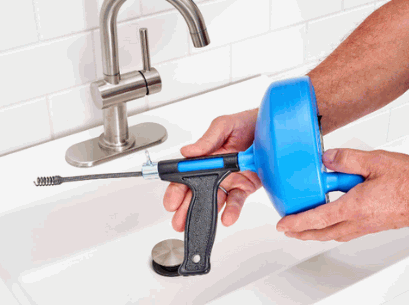
Natural drain cleaners, such as baking soda and vinegar, can be an eco-friendly and effective solution for unclogging bathroom sinks without relying on harsh chemicals or professional plumbing.
By harnessing the natural bubbling effect of these two kitchen staples, one can not only avoid toxic substances but also contribute to a healthier home environment. Follow these simple steps to maximize the effectiveness of this method:
This simple approach not only unclogs drains naturally but also emphasizes the benefits of going green in household cleaning practices.
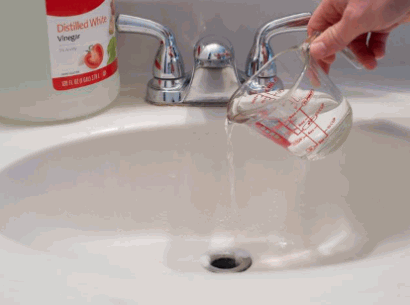
Chemical drain cleaners, such as Drano or Liquid Plumr, offer a powerful alternative for addressing tough clogs in bathroom sinks when other methods have failed. These cleaners contain potent chemicals designed to dissolve hair clogs, soap residue, and other debris effectively. It's important to follow the manufacturer's instructions carefully and consider safety precautions when using these products, as they can be harmful if mishandled or improperly mixed.
While chemical drain cleaners can provide an immediate solution, understanding their long-term implications is essential. For instance, they can corrode pipes over time, leading to more serious plumbing issues in the future. Here are some pros and cons to consider:
Using these cleaners requires strict adherence to safety measures, such as wearing gloves and goggles.
If the clog persists despite using a drain cleaner, it may be wise to seek professional plumbing services. Experts can assess the situation more thoroughly and offer solutions that are safer for your plumbing system.
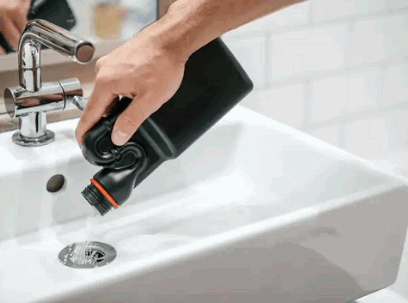
When faced with persistent clogs and drainage issues that resist DIY methods, calling a professional plumber can provide the expertise needed to resolve the problem effectively. Professional plumbers have access to advanced tools and techniques for diagnosing and unclogging drains, which may include hydro-jetting or camera inspections to identify underlying issues. Investing in professional plumbing services can save time and ensure that your drainage system is maintained properly, preventing future complications.
Attempting to tackle stubborn clogs without the right knowledge can often lead to temporary fixes that may worsen the situation. The expertise of seasoned plumbing professionals ensures thorough inspections and repairs that address not only the symptoms but also the root causes of drainage problems.
Here are some critical circumstances where their services prove invaluable:
Leveraging a plumber’s professional insight not only leads to immediate resolution but also contributes significantly to overall plumbing maintenance, ensuring a smoother-running drainage system for years to come.
Preventing clogged drains is essential for maintaining the functionality of your bathroom plumbing and can be achieved through a combination of proactive measures and regular maintenance. Simple actions such as installing a drain guard can significantly reduce the risk of hair clogs and other debris from entering the pipes. Additionally, making a habit of regularly cleaning your drain and avoiding the disposal of harmful substances can further prevent soap residue buildup and other potential clogging issues.
One of the most effective ways to prevent clogs in your bathroom sink is to avoid pouring grease and oil down the drain, as these substances can solidify and trap debris over time. By disposing of cooking oils and greasy liquids in the trash instead of the sink, you can significantly reduce the potential for buildup that leads to clogs. This practice not only helps maintain your plumbing but also promotes a cleaner environment in your home.
Understanding the impact of proper disposal of grease and oil is essential in your routine home maintenance. When these substances enter the plumbing system, they cool and harden, creating fatty deposits that may hinder water flow. Eventually, this could lead to more severe plumbing issues, costing you both time and money.
To further your effort in drain maintenance, consider the following tips:
By adopting these habits, you not only ensure the longevity of your plumbing but also contribute to an eco-friendly household.
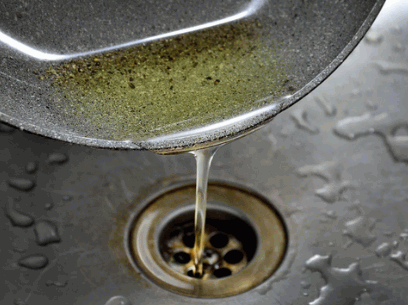
Installing a drain cover is a simple yet effective solution to prevent clogs in your bathroom sink caused by hair, soap residue, and other debris. A drain cover acts as a barrier that catches hair and larger particles before they can enter the plumbing system, making it easier to keep your sink clean and functional. Regularly cleaning the cover itself will further enhance its effectiveness in preventing clogs and maintaining your drains.
Choosing the right drain cover can significantly affect its performance. When selecting one, consider the following:
The benefits of using a drain cover go beyond just preventing clogs; they also reduce the need for frequent cleaning, saving time and effort. With proper selection and periodic maintenance, anyone can ensure their plumbing remains in optimal condition.
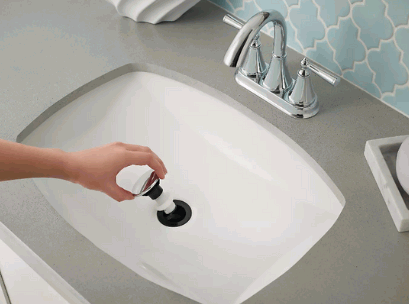
Regularly cleaning the drain is a proactive measure that can significantly reduce the risk of clogs in your bathroom sink, ensuring smooth water flow and preventing soap residue buildup. By implementing a routine cleaning schedule using natural ingredients or other cleaning solutions, you can keep your drains functioning optimally and prolong the lifespan of your plumbing system. This easy maintenance task can be done monthly or even weekly, depending on the volume of use.
To effectively manage drain cleanliness, follow these simple steps:
By following these cleaning tips and maintaining a regular schedule, it becomes easier to prevent significant issues down the line.
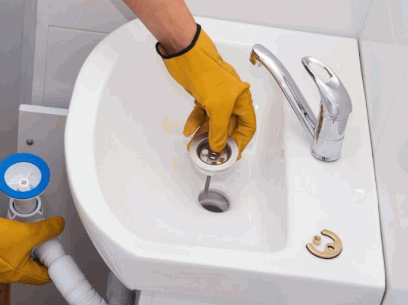
Being mindful of what you flush down the toilet is crucial for preventing clogs not only in your toilet but also in your bathroom sink, as improper disposal can lead to significant plumbing issues. Avoid flushing non-biodegradable items, such as wipes, hair, and feminine hygiene products, as these can create blockages in your plumbing system. Properly disposing of these items in the trash will help maintain your drains and avoid costly plumbing repairs.
It is important to understand how plumbing health is intricately linked to your daily habits. Regularly inspecting what goes down your drains can make a major difference in the longevity of your plumbing.
By adopting these simple yet effective cleaning tips, you’ll significantly reduce the chances of clogging, leading to smoother drainage and less frequent plumbing maintenance. Remember, taking these small steps not only enhances convenience but also protects your home from potential plumbing disasters.
Regularly cleaning the drain offers numerous benefits that can significantly enhance both the functionality of your plumbing system and the overall hygiene of your bathroom. By preventing clogs, you ensure that water flows freely, reducing the likelihood of backups and minimizing foul odors that can accumulate in stagnant water. Moreover, maintaining clean drains can lead to cost savings on plumbing services in the long run, as it helps avoid the need for extensive repairs due to neglect.
One of the primary benefits of regularly cleaning your bathroom sink drain is that it effectively prevents clogs from forming in the first place. By routinely removing hair, soap residue, and other debris, you can reduce the buildup that leads to blockages, ensuring that your sink continues to drain smoothly. This proactive maintenance saves you from the hassle and expense of dealing with serious clogs later.
Regular maintenance not only keeps your sink draining properly, but also contributes to a healthier bathroom environment. For example, using a simple mixture of baking soda and vinegar can help break down grime and keep your pipes clear.
Establishing a routine cleaning schedule is beneficial; tasks might include:
Simple actions like wiping down the sink and cleaning the drain cover can prevent buildup and ensure longevity. By incorporating these tips into your cleaning routine, you’ll enjoy a well-functioning sink while avoiding costly plumbing issues down the line.
Regular drain cleaning significantly improves water flow, allowing for efficient drainage in your bathroom sink and preventing the frustration of slow-draining water. As you clear out hair clogs, soap residue, and other materials, the path for water to exit becomes unobstructed, enhancing the overall performance of your plumbing system. This proactive approach ensures that water flows freely, making your daily routines more convenient.
Maintaining optimal water flow reduces the likelihood of costly plumbing issues down the line. By routinely addressing potential blockages, homeowners can enjoy a more pleasant experience while washing their hands, brushing their teeth, or taking a shower.
Utilizing household items like baking soda and vinegar for natural cleaning can effectively break down fat and grime that tends to accumulate in pipes.
Implementing these practices not only helps reduce the hassle associated with plumbing issues but also contributes to a fresher and more hygienic bathroom environment.
Another significant benefit of regularly cleaning your bathroom sink drain is the reduction of foul odors caused by organic materials, soap residue, and mold buildup. When drains are neglected, stagnant water can create unpleasant smells that permeate your bathroom, detracting from its freshness. By maintaining clean drains, you ensure a more pleasant environment, free from odors associated with clogs and decay.
These unpleasant smells often stem from the accumulation of debris and soap scum, inviting not just discomfort but potential health risks. A well-maintained drain not only improves the overall aesthetic of the bathroom but also plays a crucial role in ensuring sanitation. To further enhance this experience, consider implementing the following practices:
By actively addressing these factors, one effectively minimizes odors and promotes a hygienic bathroom environment, ultimately leading to an enhanced experience every time someone enters the space.
Reducing foul odors boosts overall hygiene, making your bathroom a more inviting and healthy area for everyone.
One of the most compelling benefits of regularly cleaning your drains is the potential to save money on plumbing services in the long run. By preventing clogs and maintaining clear pipes, you reduce the risk of serious plumbing issues that often require costly repairs or professional assistance. This proactive approach to drain maintenance not only saves money but also provides peace of mind.
Preventive measures can also significantly prolong the lifespan of your plumbing system. Regular cleaning can help identify minor issues before they escalate into major problems, which often come with hefty price tags. Periodic inspections and cleanings can uncover potential blockages, tree root intrusions, or sediment buildup that, if left unaddressed, could lead to extensive damage.
Consider the following financial advantages of maintaining your plumbing system effectively:
By investing in proactive drain care, homeowners can enjoy not only immediate budget relief but also sustainable savings over time.
